Will Delhi and Islamabad be able to agree on the various components of the Comprehensive Bilateral Dialogue in 2016 and resume talks, or will they spend most of the year talking about talks?
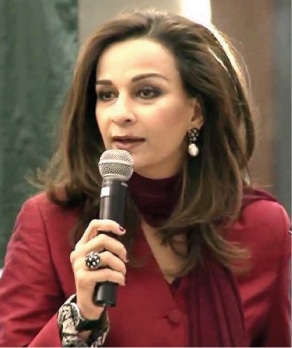
Despite rivalries that have become systemic, South Asia’s two nuclear neighbours could best serve their nations by seizing 2016 as the year to craft a new normal.
In the best case scenario, Delhi and Islamabad will begin a process of unbundling the low hanging fruit of items in the dialogue menu while talking about the big ticket items. The trust deficit bogging all progress may get a shot in the arm, if issues like Sir Creek and Wullar Barrage kick off early successes and set the tone for a sustained process.
Trade pathways and the trial of the Mumbai terrorist episode will dominate Delhi’s list of priorities, while Pakistan would seek a larger framework of strategic and core policy interventions.
In all cases, terrorism will require movement from both sides, as will an honest conversation on Kashmir that includes the Kashmiris. In the worst case scenario, spectacular attacks by terrorists in no one’s control could derail this process.
On balance, though, minus any black swan events, 2016 can change the game.
Sherry Rehman, politician and president of the Jinnah Institute
Will General Raheel Shareef get an extension in November 2016?
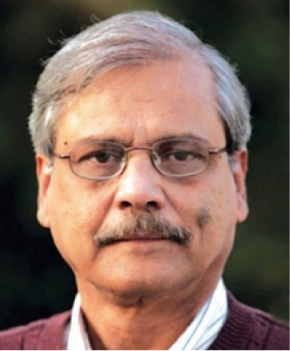
I think you are asking the wrong question. The real question is not whether Raheel Shareef will get an extension, but will he give an extension to the other [Nawaz] Sharif.
However, on a more serious note, it is only in Pakistan that the extension of the army chief becomes such a big issue. In a stronger democratic dispensation, the retirement (or not) of an army chief would be a routine matter that would not garner any attention. This is how it should be treated in Pakistan, too.
No one can deny that Raheel Shareef proved to be an extremely competent army chief, but this does not mean that Pakistan Army is devoid of other generals who can do an equally good job. The strength of an institution lies in the smooth manner in which succession takes place. The army as well as those discussing Shareef’s impending retirement should remember that.
In fact, we all need to remember Charles De Gaulle’s words that the “graveyards are full of indispensable men” and focus on the importance of institutions.
Zahid Hussain, journalist
Will the Taliban-Kabul talks lead to a decrease in violence within Afghanistan?

“We know that Afghanistan’s success will require the cooperation and support of each of its neighbours. And all of us in the region — India, Pakistan, Iran and others — must unite, in trust and cooperation, behind this common purpose and in recognition of our common destiny.”
With these words at the Afghan Parliament on Dec 25, the Indian prime minister, Narendra Modi, set the stage for a possible regional anti-terror cooperation in 2016. He drew even heavier applause when he expressed the hope for Pakistan to “become a bridge between South Asia and Afghanistan and beyond.”
Modi’s stopover in Lahore, and with the US, UK, India and China on board for Pakistan-Afghan cooperation on the reconciliation front – all of whom are now poised for talks with “reconcilable Taliban” - it is quite evident that the constituency for peace in Afghanistan will gradually expand. The “irreconcilable” Afghan Taliban will, meanwhile, attempt to ratchet up violence. However, the push for reconciliation will reduce the political space for them. Nonetheless, the key, to the damage the Taliban can or cannot do, will be the unity within the National Unity Government.
Imtiaz Gul, executive director of the Centre for Research and Security Studies
Can one hope for progress in the Mumbai trial in this year?

Fast-tracking of the Mumbai trial for India means award of capital punishment to Lakhvi and others this year. This does not seem likely in 2016. The trial is expected to linger because the list of witnesses is extensive and the defence lawyers have a right to cross examine each one of them.
The defence has already filed numerous applications and they will persist with delaying tactics. The government of Pakistan – the prosecutor – faces genuine legal limitations. It cannot control the court. Further, lack of cooperation from the Indian side during early part of the trial is proving damaging for the prosecution. Dossiers received through diplomatic channels were not admissible. Pakistani investigators were denied access to site and disallowed from taking the statement of Kasab.
Later, lawyers who travelled to India were denied cross examination by the Indian side. The trial essentially under charge of conspiracy and capital punishment is highly unlikely even if Pakistan tries its best. Therefore, the expectation of what the government of Nawaz Sharif can do should be realistic.
Ahmer Bilal Soofi, lawyer and former federal minister
Will 2016 bring some good news for the residents of Fata in the shape of political reform?

For 2016, the people of Fata have two great expectations from the government of Pakistan. First, they hope that the Internally Displaced People will return home, and second they expect the five-member committee formed by the government for reforms in Fata will accomplish the job in consultation with the people.
At the very least, the committee must hold a referendum which will fairly ask the tribal people if they want to merge with Khyber Pakhtunkhwa or have Fata as an independent province. Referendums have been misused in the country’s history so the government needs to be very careful this time. The referendum has to be fair and free to accurately reveal what the people want.
The government must not impose a unilateral decision on the tribal people; instead it must empower them and let them make the decision about how to mainstream and reform Fata. The state can no longer afford to miss another opportunity to win the hearts and minds of the people of Fata.
Ayaz Wazir, former ambassador
Will the government opt for a new IMF loan once the current one ends?

As the loan ends in September 2016 and the government has reserves of $16 billion, my own assessment is that it will not seek a new loan. The reserves are sufficient to provide import cover for four months. In fact, the government will use the breathing space it has to shift from stabilization to growth. With the elections so close, it will try to create growth so that the people feel better and the PML-N can attract more support in the run up to the next elections.
With this aim in mind, the government will also focus on various energy projects to decrease loadshedding. It is working on a bunch of projects, including three LNG projects outside CPEC, which will add 3,600 MW to the grid. The CPEC projects are calculated to add another 10,000 MW.
However, come 2018, when the current IMF loan has to be paid off, the government will have to seek a new loan.
Hafiz Pasha, economist and former federal minister
What Pakistani films can one look forward to in 2016?
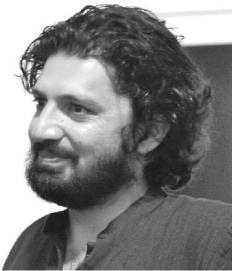
The one sure shot prediction about the Pakistani film industry in 2016 is that it is going to be an unpredictable year – again! In no particular order, here is a sneak peek.
Hijrat: Farooq Mengal’s long awaited magnum opus. Sahir Ali Bagga is set to hit the big time with some unforgettable tunes.
Mah-i-Meer: Manzar Sehbai performing the role of a lifetime written by his brother Sarmad Sehbai. Explosive.
Dobara Phir Se: Mehreen Jabbar’s return to the big screen after the groundbreaking Ramchand Pakistani. Not to be missed.
Gardaab: Starring Amna Ilyas, this Harune Massey debut is all set to thrill.
(And the Zinda Bhaag team is ready with a black comedy of epic proportions.)
Farjaz Nabi, director of Zinda Bhaag
Which city in Punjab will Chief Minister Shahbaz Sharif head for in 2016 to announce a new metro bus service?
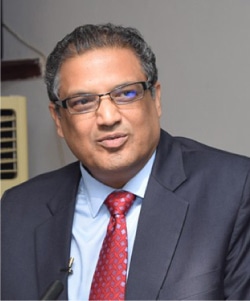
Only Faisalabad is left now, I think, for Chief Minister Shahbaz Sharif to announce a bus service in; the one in Multan will probably be launched in 2016 also. But for 2016, the chief minister should look beyond roads and focus on health and education.
These two sectors need urgent attention.
Suhail Warraich, journalist
Will PPP Chairman Bilawal Zardari Bhutto visit Punjab in 2016 and rejuvenate the party?
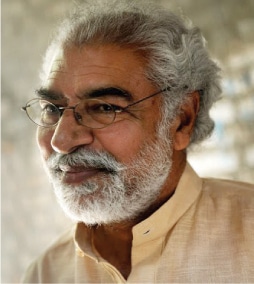
I don’t see this happening in the New Year. The PPP’s ailment is of a serious nature, which can’t be cured whether or not young Bhutto makes it to Lahore or not, which is PML-N’s seat of power. The party’s only remedy lies in sending Mr Asif Ali Zardari into the background and allowing Bilawal to literally take charge of the party; then Bilawal will be able to do something for his party in Punjab or elsewhere in the country.
Otherwise, regardless of whatever initiatives the new chairman of the PPP has taken or will take in the coming days, the party will remain under the tight control of his father and the latter’s handpicked office bearers will continue to rule the roost in the party affairs.
Ayaz Amir, columnist and former MNA.
Will PTI once again be able to de-seat National Assembly Speaker Ayaz Sadiq, as the former has challenged the results of the NA 122 by-election?
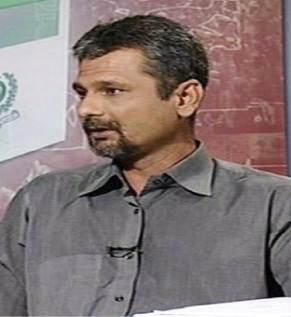
It will not be possible for the PTI to force another by-election in NA-122.
Earlier, an election tribunal ruled in favour of PTI chairman Imran Khan and called for a fresh election in the constituency.
This time around, the PTI claim that it has enough evidence to prove that the electoral rolls were tampered with to provide an advantage to Mr Sadiq is not that easy to prove.
Although, managing the electoral rolls is the responsibility of the Election Commission of Pakistan (ECP), the National Database and Registration Authority (Nadra) is also involved in the entry of new voters. This means that it is hard to prove who is responsible for the shifting of votes and that it was done with mala fide intentions.
Moreover, the issue of shifting of votes without the mandatory consent of voters is not a new one; it has been raised in the past but the point is even if legally, the electoral rolls are found to be faulty, Mr Sadiq cannot be held responsible. Therefore, it’s hard to see a by-election in NA-122 in 2016.
Muddassar Rizvi, Free and Fair Election Network (FAFEN).
Will PTI Chairman Imran Khan continue to ignore the lower house of parliament as he did in 2015?

The PTI chairman will continue with his present routine; he will only attend selective sittings of the lower house of the parliament, when it is mandatory for a lawmaker to be on the floor of the house.
His absence from the National Assembly is not something he does deliberately.
It is just against his temperament to turn up regularly.
Even during his first term as MNA in 2002, his attendance record was very poor. He doesn’t consider the National Assembly proceedings worth his time.
Ahmed Bilal Mehboob, president of PILDAT.
Published in Dawn, January 1st, 2016













































